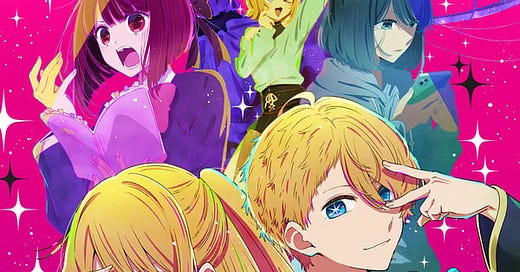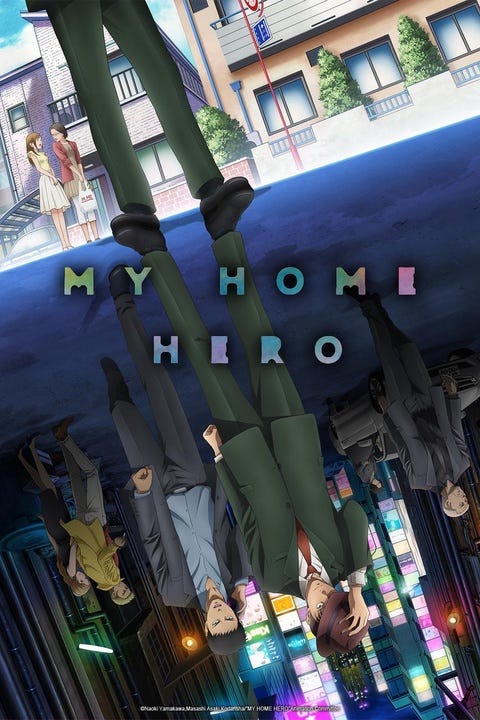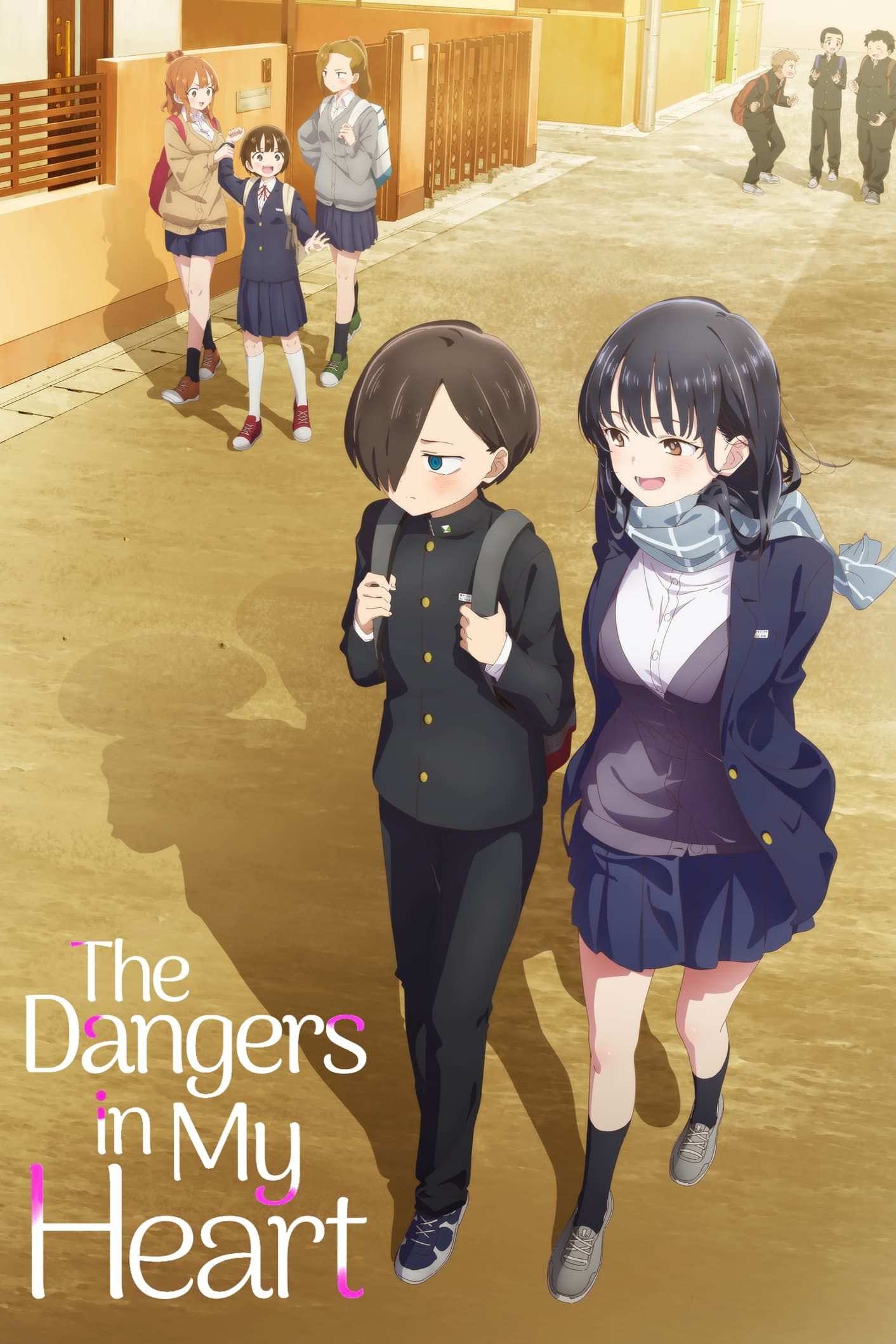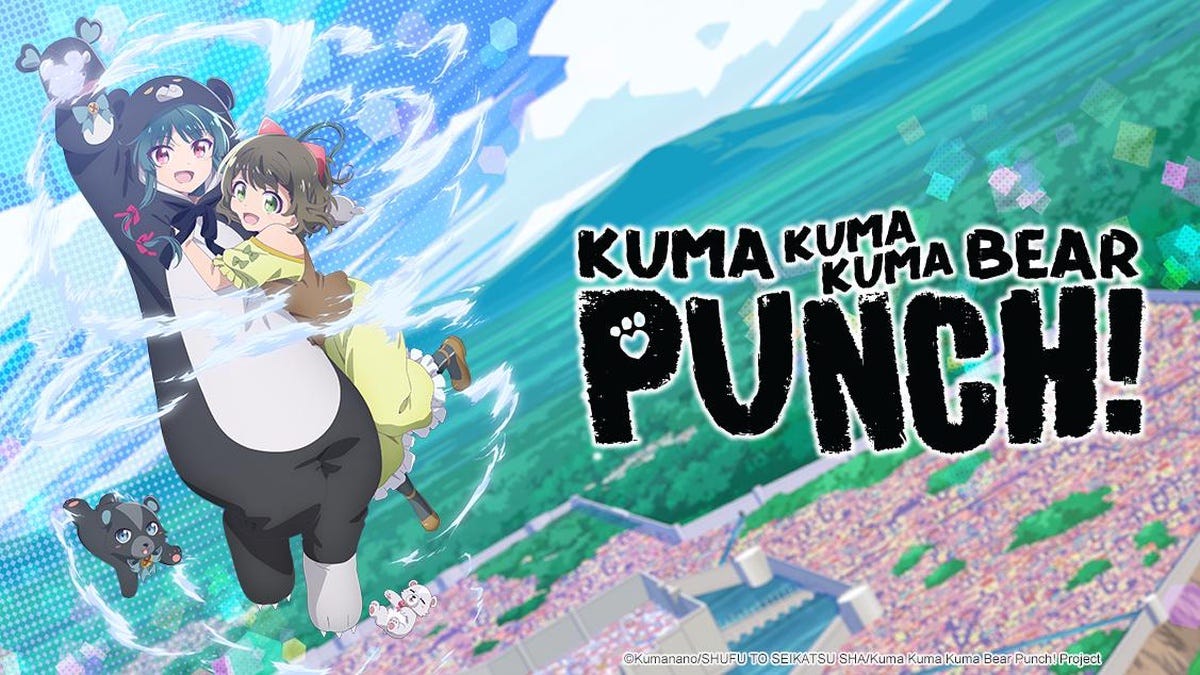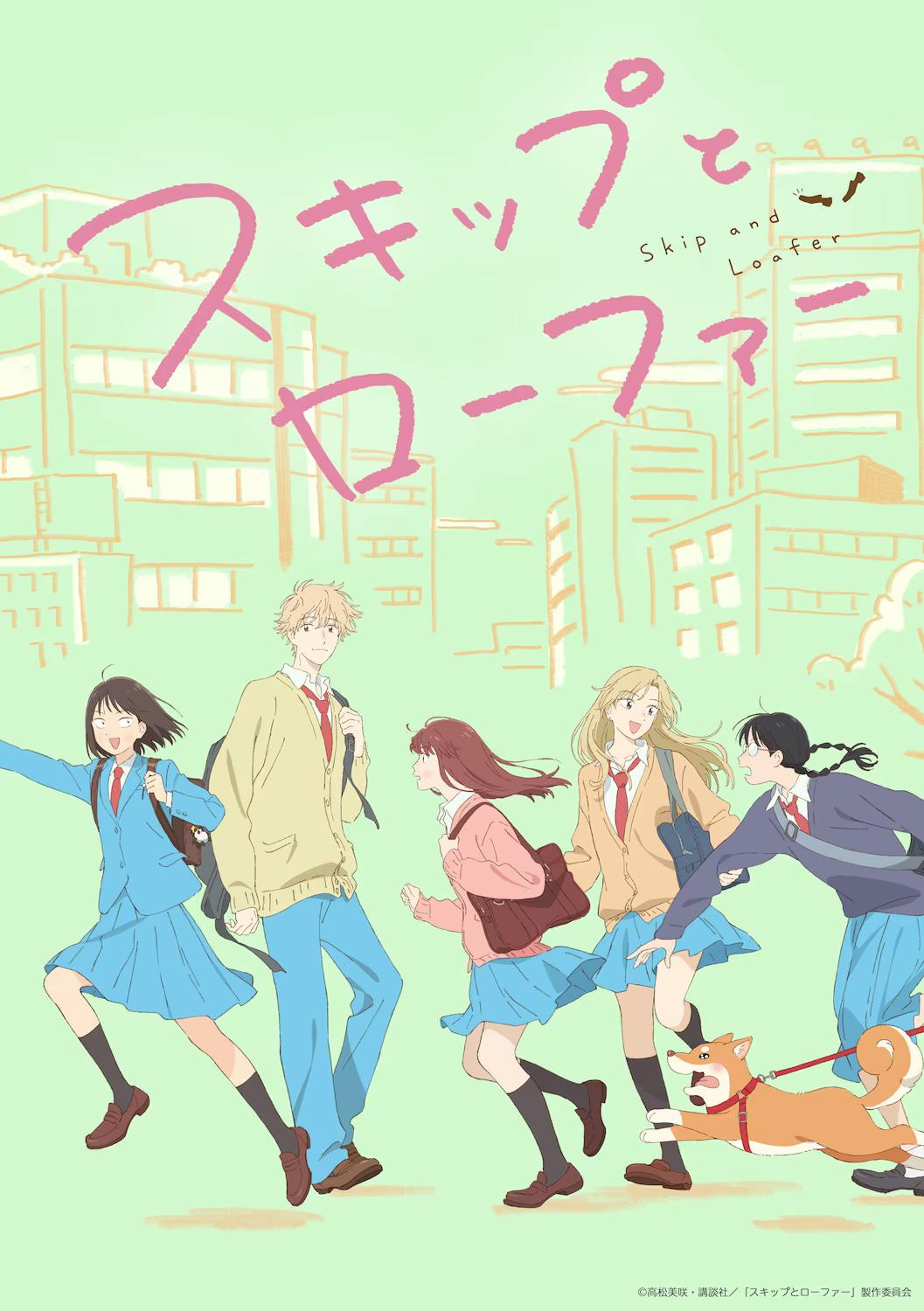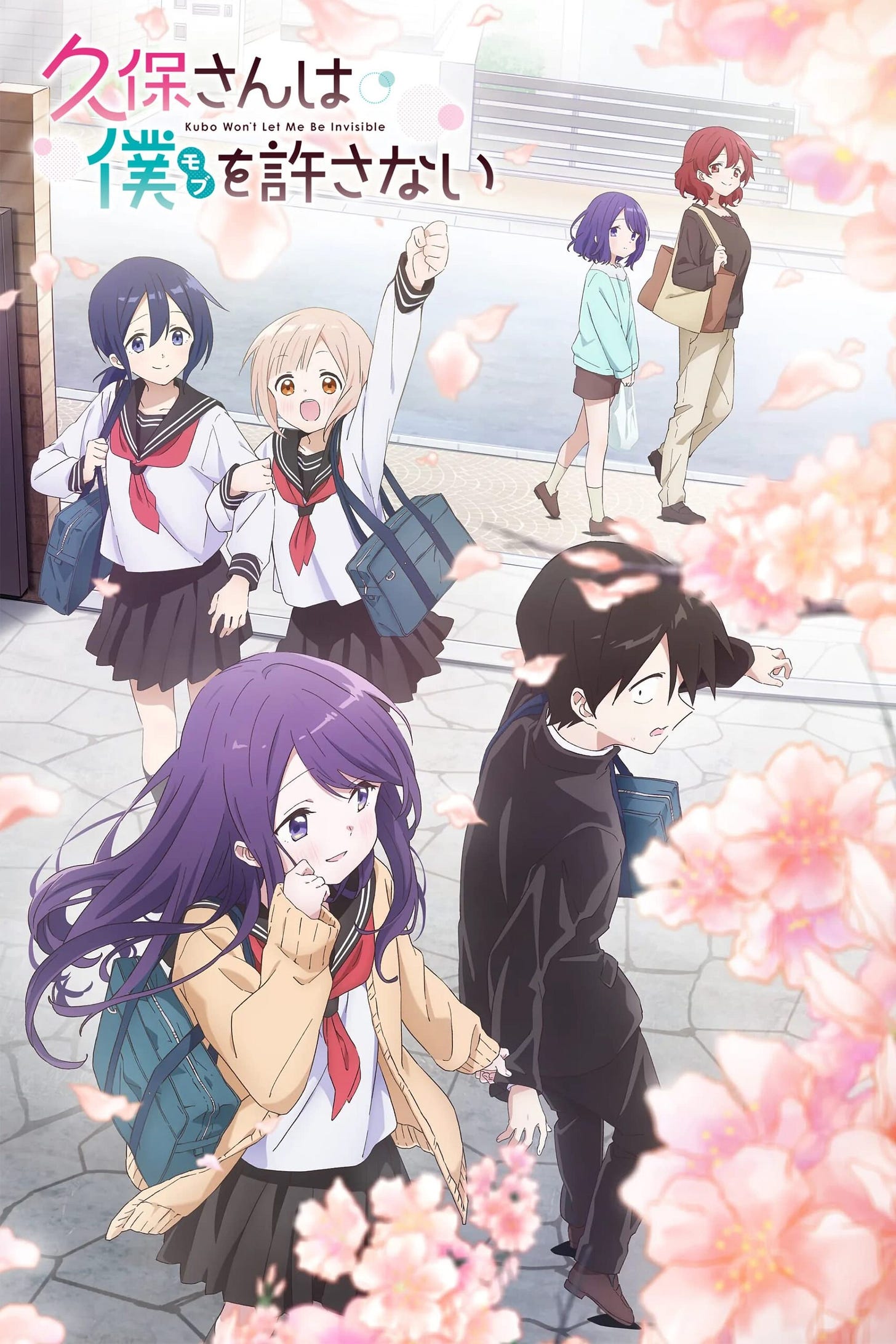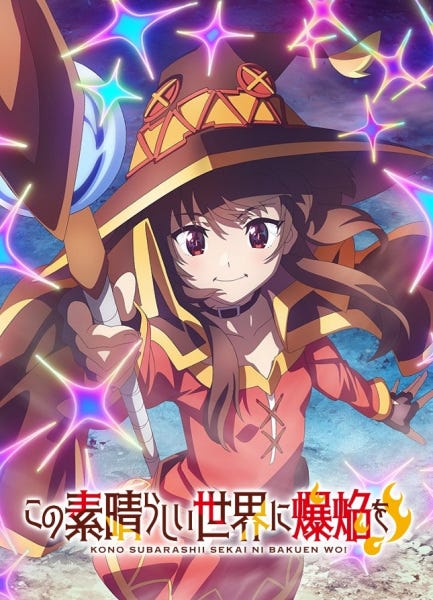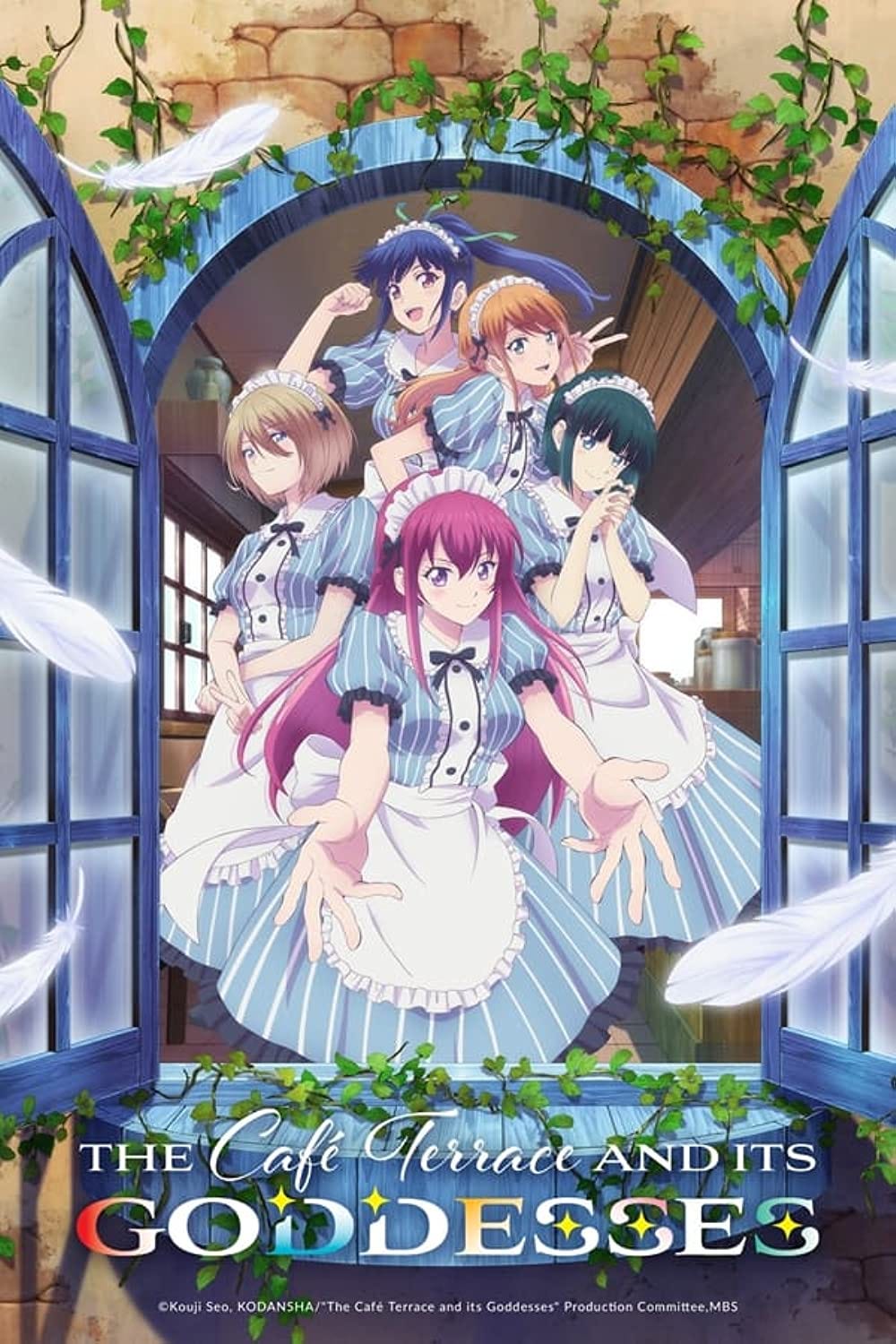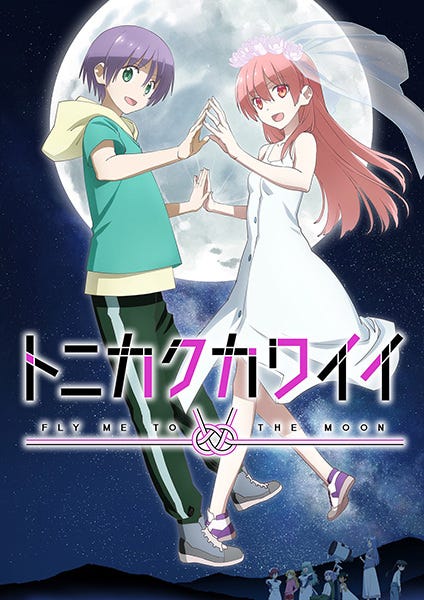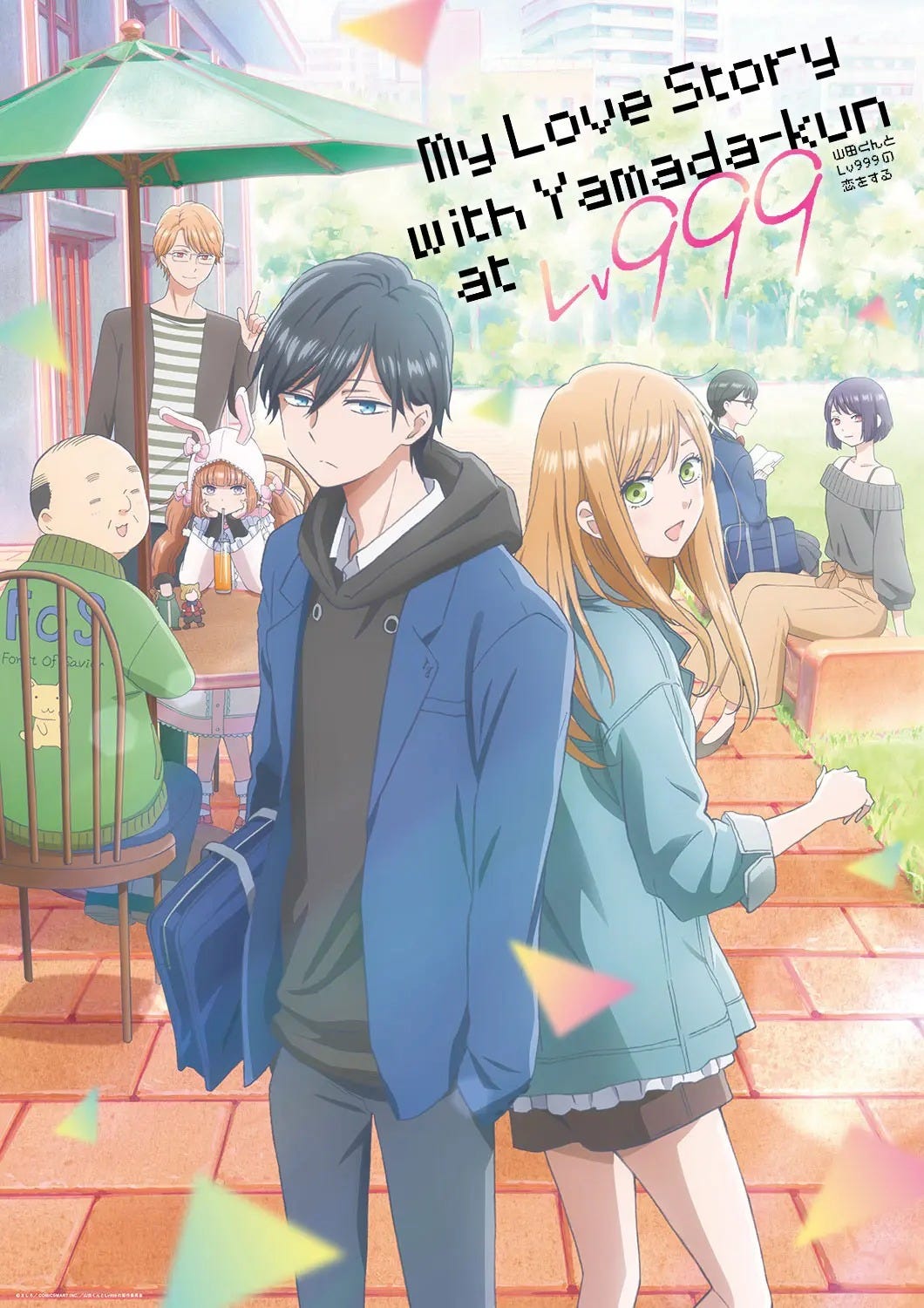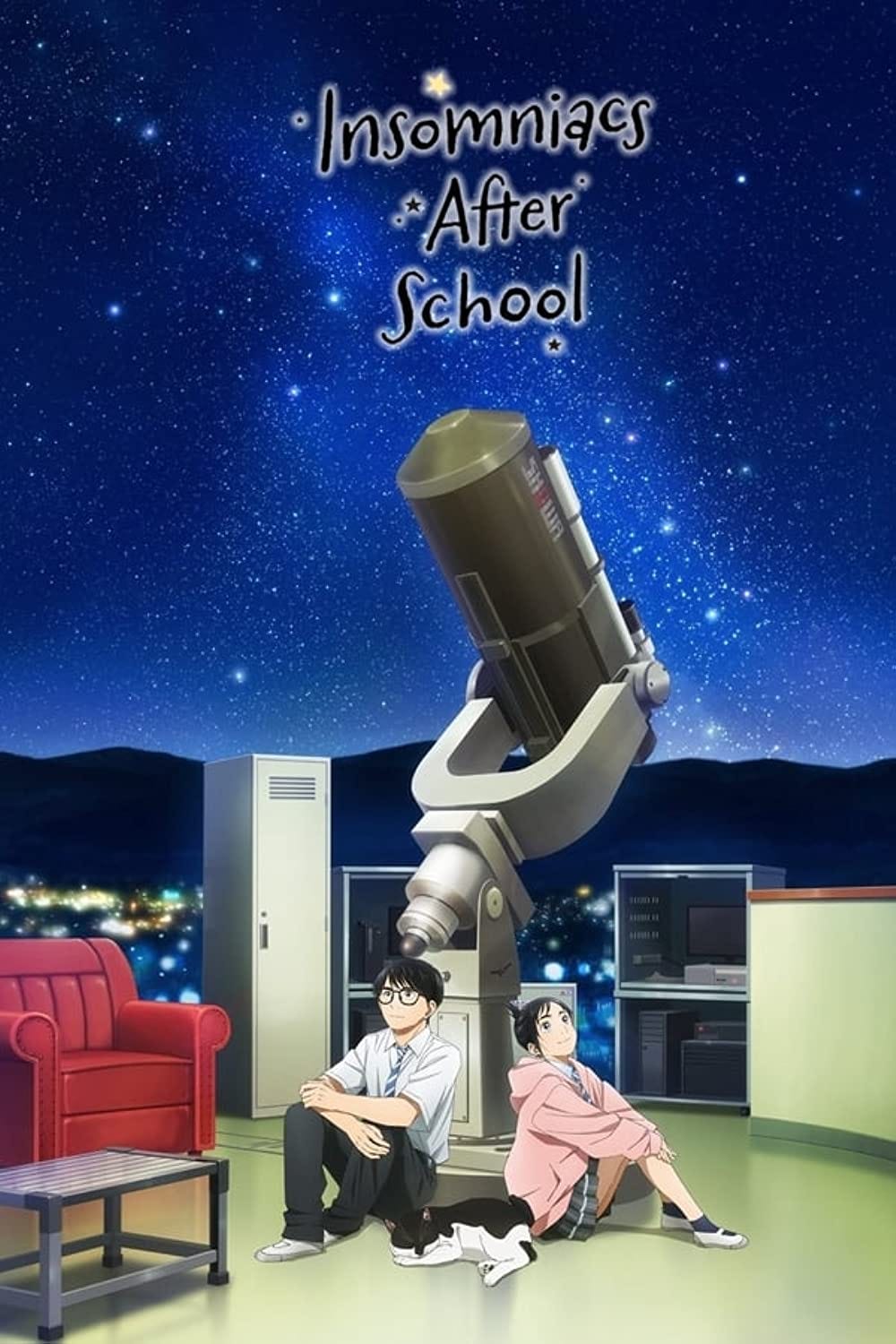Spring 2023 Wrap-Up
If you ever see me planning to watch more than ten seasonals at once on MAL or Anilist, I beg you to stop me.
Oh, man! What a season it’s been! If you didn’t catch it, I mentioned at the top of my review for Bofuri (Season 2) that I’d be revising how I finalize my show ratings. Previously, I would rate each episode individually and take the average at the end of the season. Now, I’m using a formula which values different aspects of an anime differently. These “subscores” are tallied together to create a composite score, and that composite score is rounded to the nearest whole number (for consistency’s sake across MAL and Anilist).
Here’s a breakdown of my scoring. These are just some of the questions I ask myself before deciding on a score for each category:
Plot: 40%
Was I eager to watch the next episode?
Did the plot make sense?
Did I like the direction the show went?
Are there any lingering plot holes or loose ends following the finale episode?
Characters: 30%
Protagonist(s): 20%
Was the protagonist(s) properly developed?
Did they receive an adequate backstory?
How did their character evolve over the course of the season?
Supporting Cast: 10%
How developed are the supporting cast members?
Do they overshadow the protagonist at all? Or do they complement them?
If the supporting cast has a side/subplot, does it take away from the main plot at all?
Genre: 20%
If the show was a comedy, were the jokes funny? Was the timing right?
If the show was a romance, how emotional or intimate did it get?
If the show was action, how were the fight scenes?
Overall, how does this show compare to others in the same genre(s)?
Art/Animation/Design: 5%
How do the visuals hold up? Are they unique in any way?
How unique are the character designs?
How much variety is there in the way characters are depicted? Do they have multiple looks, or do they keep the same look throughout?
Is there any effort put into landscape shots or background characters?
If there are action sequences, how do they look in comparison to similar titles?
Music: 5%
Does the score match the tone of the show?
If there’s an OST, does it enhance the emotion(s) felt during certain scenes or sequences?
Is the OP or ED catchy? Or are they skippable?
With all this in mind, let’s break down the shows I watched this past spring.
My Home Hero (Tezuka Productions)
Plot: 7/10 - Some of it did feel a bit silly, but My Home Hero managed to keep me on edge week after week. The cliffhangers were fantastic.
Characters
Protagonists: 7/10
I find it hard to believe Tetsuo managed to get out of so many sticky situations just by being a fan of mystery novels. Yet, I still found him entertaining to watch.
Kasen acting as Tetsuo’s accomplice was great and all, but I was disappointed in that the show omitted her backstory. How is she so bold and daring? Where does she get it from? There’s gotta be a reason for why she’s so willing to help her husband commit crimes and escape the yakuza. And it can’t be just out of pure love and devotion.
Reika was one of the more frustrating characters to watch. Sure she might not know everything that’s going on behind closed doors, but some of the decisions she makes are absolutely baffling.
I was surprised by the show’s commitment to get me to sympathize with Kyouichi. It didn’t work, but I can respect the attempt made to give him more depth than an average member of the organization. He’s not just some random guy in charge of watching over Tetsuo.
Supporting Cast: 6/10 - They’re mostly forgettable, but for the roles they play in the story I think they were fine at best.
Genre: 7/10 - I have minimal exposure to the crime genre (or anime involving yakuza), but My Home Hero was a decent dramatic thriller.
Art/Animation/Design: 5/10 - Nothing stood out to me particularly about this show’s A/A/D. Interpret that as you will.
Music: 6/10 - The OP and ED were skips for me, but the score was good; it successfully managed to heighten the tension or suspense of certain scenes.
Final Score: 6.75 > 7/10
Would I recommend? Probably not if I’m being honest. I’m sure there are similar anime out there that have a more coherent plot than My Home Hero.
The Dangers in My Heart (Shin-Ei Animation)
Plot: 9/10 - If this were an awards show, The Dangers in My Heart would definitely win “Most Improved.” The show had a rough start by introducing Ichikawa as this edgy middle schooler with a strange desire to kill. “How could this kid possibly fall in love?” “How could someone fall for him?” Those are some of the questions I asked myself after the first three episodes. But if you can get over this minor hurdle, I think you’ll be just as surprised as I was by how the romance is handled.
Characters:
Protagonists: 8/10 - Like I just said, this one was a sleeper hit for me, and I gradually came to like both Ichikawa and Yamada. Originally, I wasn’t huge on Ichikawa’s weird penchant for murder or Yamada’s ditzy personality. But once the show did away with the murder, it was really cool to watch Ichikawa come to terms with his true feelings for Yamada. As for how Yamada went from a boring love interest to possibly one of the best girls this season, I really couldn’t tell you exactly when that moment was. I’d imagine something about Ichikawa reconciling his feelings made me see Yamada in a better light, getting increasingly flirty with him throughout the show. Also, I just really like the fact that Ichikawa is giving representation to us short kings. This is exactly the kind of relationship I wanted out of Lovely Complex.
Supporting Cast: 6/10 - The supporting cast was fine. Most of the story is dedicated to cultivating Yamada and Ichikawa’s relationship, and that was fine by me since I believe it paid off. One character who I believe deserves a shoutout is Kana, Ichikawa’s older sister. She doesn’t tease him about his obvious crush on Yamada and for good reason. When she realizes that he might actually have a chance with Yamada, she backs off and even tries to help him out, much to Ichikawa’s chagrin. I thought that was really sweet of her (and perhaps unexpected from the show), so I gotta give credit where it’s due.
Genre: 9/10 - I definitely got Tsuki ga Kirei vibes in the latter half of the show. Hand holding and hugs are the extent of Yamada and Ichikawa physical intimacy, which is actually decent progress for middle schoolers. Definitely in the upper echelon of cutesy romance anime for me.
Art/Animation/Design: 7/10 - Character designs and art were both alright while the animation was decent. Nothing egregiously bad, but I think this show did a great job conveying Yamada and Ichikawa’s mutual feelings visually.
Music: 10/10 - Absolutely perfect. The OP and ED actually grew on me as the weeks went by, and I even added them to my anisong playlist on Spotify. The score was really good too, and it’s quite noticeable in the scenes containing an insert shot of the episode’s title card.
Final Score: 8.45 > 8/10
Would I recommend? For first timers, no. But for anyone who’s been away from anime for a while and wants to watch more recent stuff, yes. I think romance fans in general would like this one a lot, especially if you’ve watched Tsuki ga Kirei.
Kizuna no Allele (Wit Studio, Signal.MD)
Plot: 4/10 - While the prospect of a group of amateur vtubers (or virtual artists) was interesting, it was completely mishandled. From the pacing of the show to the lack of world building, a lot of elements were severely lacking. Plus, Kizuna Ai, the one string connecting our world and the world of the show, has no real bearing on the show’s plot. To say I’m disappointed is an understatement. A very underwhelming anime.
The show also wastes precious time towards the end of each episode, spending 3-5 minutes on a vtuber sketch. I would much rather have them use that time more effectively than to get some quick laughs out of us each week.
Characters
Protagonists: 3/10 - The main character is Miracle, but she’s such a hard protagonist to root for. She does everything she can to qualify for the Virtual Grid Awards, and what do her efforts amount to? Just barely making the cut in the final episode. I don’t feel like her character progressed at all from start to finish. Sure, she made some friends along the way, but she never truly comes into her own and relies a lot on the supporting cast to muster up confidence (at one point seriously considering quitting vtubing). Her lack of motivation is also what killed her character for me. I can’t remember a single time when we got backstory on her or why she became a vtuber in the first place. Yeah, she’s a fan of Kizuna Ai, but so is everyone else! What makes her special? Finding a reason to root for Miracle was practically impossible for me.
Supporting Cast: 5/10 - The supporting cast was much more interesting than Miracle. However, each of them had their own set of problems.
Chris - Chris is supposed to be the free-spirited one who acts a bit strange but has a kind heart. She was a bit too weird for my liking, and when it came to her backstory episode my conclusion was that she’s dependent on Miracle.
Riz - Riz was so cool in her debut episode, but other than bailing out Miracle in the hoverboard race and teaching us about fake news, she hardly did anything afterwards.
Quan - They had this interesting dynamic going on between her and Miracle IRL versus in the metaverse, which reminded me a bit of Yu-Gi-Oh! VRAINS. However, I do wish we got to learn more about Quan/marumaru in the real world because the show relegates them to be this mysterious figure who habitually drinks tea in the middle of a greenhouse.
Noelle - Noelle’s probably my favorite character out of this entire show just because she’s the one who had the most backstory and gave me a reason to watch her grow and succeed. I thought her interactions with Miracle were really funny and, oddly enough, wholesome. She goes from a cold, distant character who seemed set on doing her own thing to making friends and learning the value of collaboration. It’s a shame that none of the other characters received a similar amount of thought put into them.
Genre: 2/10 - This show’s unique in that it’s unlike anything I’ve ever seen before, but I’m sure there are plenty of other idol anime out there you can watch that are better than this. “School” plays somewhat of a role in the show (all of the vtubers attend an academy specifically for vtubing), but the show’s incredible lack of depth make you wonder just why exactly does this show need to take place in an IRL school setting?
Art/Animation/Design: 5/10 - I’ll shoot Kizuna no Allele some bail in this department because I actually really liked the character designs of everyone, especially Quan which sucks because her avatar only appears in the last two episodes. The finale pissed me off because as soon as Miracle watched a Kizuna Ai video to get some last minute inspiration, I thought to myself, “Hm, why didn’t every other individual performance have as good CGI as Kizuna Ai?” I got my answer immediately: the team behind this anime poured ALL OF THEIR RESOURCES INTO THE LAST PERFORMANCE WITH THE FIVE OF THEM TOGETHER. Yes, it looked great and their harmonies sounded decent. But really? Really?! It felt like a gut punch, and I couldn’t help but feel annoyed.
Music: 4/10 - Literally the same song performed multiple times just with different lyrics. For a show that placed a ton of emphasis on individuality and standing out, I found it quite ironic they kept using the same melody (even within the context of it being a template for the Virtual Grid Awards).
Final Score: 3.55 > 4/10
Would I recommend? Absolutely not. Not even as a troll recommendation. And to top it all off, I can’t believe this show got a second season.
Kuma Kuma Kuma Bear Punch! (EMT Squared)
Plot: 7/10 - I will say the last episode was JUST enough to make me change mind. Originally, I was gonna give the plot a 6, but it was so damn satisfying watching Yuna beat down the shitty nobles - an aspect I thought was a bit lacking in this season. A lot of it is problem solving with Yuna honing her combat tactics and magic in between, which is fine, but it does get old really quickly.
There’s one plot hole that annoyed me and that’s the inconsistency in Yuna’s healing magic. If you watch episode 10, you’ll see what I mean. But from what I’ve read, it has something to do with the source material being a lot darker than the anime itself. That’s unfortunate because I think I would’ve enjoyed a more faithful adaptation. However, I can see there being a possibility of tonal whiplash if the anime tried balancing wholesomeness and savagery.
Characters
Protagonists: 7/10 - Yuna gets a combat upgrade with her mithril knives, but other than that, she’s the same “Kuma onee-san” everyone mistakenly underestimates. Her reaction faces are a major highlight of the show for me.
Supporting Cast: 6/10 - The supporting cast was fine. I liked the expansion of the Farrengram family and the feud between the two nobles of Sheelin. No one really takes an active role in solving problems other than Yuna, but I guess that’s to be expected with someone as powerful as her walking around.
Genre: 7/10 - I think this is the perfect spot to place Kuma Kuma Kuma Bear Punch considering all the other choices for CGDCT, comedy, adventure, fantasy, and perhaps isekai? That last one is up for debate.
Art/Animation/Design: 6/10 - It was ok. The show has a comic book feel to it, which fits the theming of the show to a degree. I will, however, call out the shoddy animation in episode 3 during the fight between Yuna and the black tiger. Something felt off about it. There weren’t too many new characters who stood out to me visually this season.
Music: 5/10 - Music didn’t play too big of a role in this show. The OP and ED were skips for me, unfortunately.
Final Score: 6.75 > 7/10
Would I recommend? If you liked the first season, you’ll probably like the second. But between the two, I prefer the first. As a franchise, I’d probably recommend other titles before this one. If you’ve exhausted the CGDCT and fantasy adventure genres, I’d say go for it.
Skip and Loafer (P.A. Works)
Plot: 8/10 - Skip and Loafer is second to The Dangers in My Heart for unexpected surprises this season. I remember adding it to my plan to watch solely because of source reader hype (which is a dangerous game mind you), and it certainly lived up to it. It ends on a relatively high note, and I really hope it gets a second season.
Characters
Protagonists: 8/10 - The friendship dynamic Mitsumi and Shima have is an absolute blast to watch. Even if they don’t get as close as I’d hope they would, their [platonic] friendship is why I looked forward to watching this one every week. I think if Shima’s trauma as a child actor was more cohesive, I would’ve rated these metric higher but other than that I really enjoyed the interactions these two had.
Supporting Cast: 10/10 - The supporting cast was perfect. Everyone has their fair share of backstory, and we are given adequate explanation as to why some characters are the way they are. Yet, in spite of their contrasting personalities the friends pictured above fit seamlessly together. From the outside looking in, you wouldn’t imagine a group like this being friends.
Someone who isn’t pictured who I believe deserves a shoutout is Nao, Mitsumi’s fashionable aunt. She develops an unexpected friendship with Egashira, which I thought was well-executed. Not only that, but Nao’s character is a huge win for trans representation - something that’s very rare in anime. Her trans identity is hinted at and referenced a few times throughout the show, but the show doesn’t go out of it’s way to make a big deal about it. Nao is trans. That’s it. She’s written like a normal character, helping Mitsumi adjust to life in the city.
Genre: 9/10 - This show is the absolute embodiment of slice of life. It’s grounded, its characters feel real, and the relationships are authentic. I think if it leaned a little more into the romance, I would’ve given it a 10/10, but even if it does skimp out in the romance department it doesn’t take away from the foundation it’s built. One of the better coming of stage stories in recent memory.
Art/Animation/Design: 7/10 - Pretty standard all around. Is it strange that I’m a fan of the character designs of pretty much everyone in this show? They’re not the flashiest, but I think for a show that’s rooted in simplicity I think the design team managed to strike a delicate balance between looking distinct but not forgettable.
Music: 7/10 - The OP is a banger. Can’t say the same about the ED unfortunately. I skipped it most of the time.
Final Score: 8.3 > 8/10
Would I recommend? Yes, absolutely. I might even go as far as recommending it to anyone who’s new to anime. It’s because the show is very easygoing and chill enough to where anyone can get into it quickly. It might be boring for anyone who’s into action (in which case there are better choices). But if you’re genre agnostic, Skip and Loafer wouldn’t be a bad choice for newbies. I actually bought the first volume of the manga when I was in Japan, so I’m excited to see how faithful the adaptation was.
Kubo Won’t Let Me Be Invisible (Pine Jam)
Plot: 8/10 - While the show doesn’t really end conclusively, nor does it feel like any real progress was made, I still really enjoyed watching Nagisa become all giddy over Shiraishi week after week. If the feelings weren’t as one-sided, I would’ve given the plot a 9.
Characters
Protagonists: 9/10 - Nagisa is a bundle of joy, has top tier pouting faces, and is voiced by none other than Hanazawa Kana. Shiraishi, although plain looking and a debatably boring character, is endearing in his reactions. Some might say he’s a bit dense, but that didn’t stop me from liking him as the MMC. I thought the relationship he has with his little brother Seita is incredibly wholesome, providing some obvious reason to why Nagisa is in love with him.
Supporting Cast: 8/10 - The standout supporting cast members for me have got to be Akina and Saki. It seems like teasing runs in the family, and I liked how Akina sorta gives Nagisa a “taste of her own medicine” so to speak. Saki, similar to Seita, was also very cute. Even though Saki is Nagisa’s little cousin, it still feels like Nagisa is the middle sibling in the family, looking up to Akina while Saki is looking up to her. I just loved the sibling/family dynamic so much in this show.
Genre: 9/10 - While romance anime are prone to a ton of problems and common tropes, you can hardly go wrong with something as sugar-induced as this show. I couldn’t ask for more really. That being said, the show is limited in what it can do with Nagisa and Shiraishi’s relationship because of its premise (i.e., Shiraishi’s invisibility).
Art/Animation/Design: 10/10 - The character expressions are what do it for me. There are so many good chibi faces of Nagisa and Akina that managed to translate very well from page to screen (I bought the first volume of the manga when I was in Tokyo). For a newer studio like Pine Jam, I think they scored a home run on this one.
Music: 7/10 - OP is on my anisongs playlist while the ED isn’t.
Final Score: 8.45 > 8/10
Would I recommend? Not as someone’s introduction to anime but definitely as a romance. If you’re a fan of school settings and 100% pure sugar, Kubo Won’t Let Me Be Invisible is the perfect fit for you.
KonoSuba: An Explosion on This Wonderful World! (Drive)
Plot: 8/10 - While the spin-off centered around Megumin is nowhere near the comedic peaks of the main series, it’s still a praiseworthy entry in the franchise as it gives us valuable insight into the origins of Megumin and the Crimson Demon village. A lot of the events in the show, especially after Megumin leaves the village, influence or directly tie into the events that occur in the first season of Konosuba, which I thought was really cool! The show struck a healthy balance between world building around the Crimson Demon village and showcasing Megumin’s adventures before joining the main cast we all have come to adore. And although it’s primarily backstory, we do get some light conflict between Megumin and Arnes, who’s search for her master Wolbach leads her to Megumin’s familiar cat Chomusuke.
Characters
Protagonists: 7/10 - A lot of what makes Megumin one of my favorite characters in Konosuba depends on her interactions with the main cast (Kazuma, Aqua, and Darkness). But her overconfidence and shamelessness still shine brightly in this show, so I can’t fault her too much.
Supporting Cast: 7/10 - Although I would’ve liked more characterization from the other girls in village (e.g., Arue, Funifura, Dodonko, Nerimaki, etc), I really liked how the show cultivated the friendship and one-sided rivalry between Megumin and Yunyun. The latter is the perfect foil to Megumin, and no matter how many times she yells at Megumin for embarrassing her, it’ll never get old. Some other supporting characters I want to shoutout include Bukkorori and Cecily; they were both hilarious in their own right. And another shoutout to Soketto. I’m glad we got to see more of her after her debut in the Konosuba movie.
Genre: 8/10 - Really solid fantasy/adventure/comedy. I can’t recommend Konosuba enough if you’re a fan of all three of those genres.
Art/Animation/Design: 8/10 - If you remember, Studio Deen animated the first two seasons of Konosuba while J.C. Staff took over production for the movie. This time, Studio Drive was in charge, and I honestly couldn’t tell the difference, which I guess is a good thing! The explosion magic animations were my favorite sequences to watch; they were clean and consistent with what I remember from the main show.
Music: 6/10 - OP and ED were skippable for me, but I did like listening to ED whenever I’d let it play out. The score was pretty good during Megumin’s fight scenes, especially right before she cast her explosion magic.
Final Score: 7.6 > 8/10
Would I recommend? If you’ve seen Konosuba before, definitely pick up the spin-off show because there are plenty of easter eggs sprinkled throughout that’ll have you appreciate some of the minor details in the main show. If someone has never seen Konosuba before, you could arguably watch this series first. Chronologically speaking, there’s nothing wrong with that since the spin-off ends right near the beginning of Konosuba season 1. But I think a lot of fans will tell you to simply watch the franchise in release order, and I believe that’s for the best.
The Café Terrace and Its Goddesses (Tezuka Productions)
Plot: 7/10 - While the plot isn’t wholly original, I still believe this anime has some merits of its own. It started out quite rough, and I was struggling to like the girls because of how they treated Hayato. But I thought to myself for a moment and remembered that this was exactly how I felt during the first season of Quintuplets. And in retrospect, I think the conflict between Hayato and the girls and the problem solving was necessary to make the last three episodes feel more genuine. I think the biggest surprise for me was how direct and outright three of the five girls were about their feelings for Hayato. Whereas in Quintuplets there was a gradual reveal, I liked this approach because it felt fresh and has me looking forward to all of them going on the offensive next season (which was announced after the last episode aired).
Characters
Protagonists: 8/10 - Hayato is absolutely based. He might be stubborn, but he’s not dense and is actually sensible - a rarity for harem rom-com MMCs. In terms of where I’d rank the girls: Akane > Riho > Shiragiku > Ouka > Ami.
I really liked Akane’s vibe, and I absolutely love how she went on the offensive first while also getting Riho to admit to her true feelings. Plus, she’s in a band, and that’s pretty cool.
Riho is a close second; I really liked her backstory as a child actor, and the show did well in explaining why she’s so hardworking to the point where she forgets about her own well-being.
Shiragiku comes in third, but if it weren’t for the last episode I would’ve had her fourth. Her backstory and her relationship with Hayato (before present day) changed how I looked at her and has me rooting for her slightly more than Ouka and Ami.
I don’t think there’s anything wrong with Ouka. It’s just that the other girls overshadow her.
Ami is just comic relief and here to break the tension (for better or for worse).
Supporting Cast: 7/10 - For a character who isn’t present, I thought this show did well in characterizing Hayato’s grandmother, especially in the last episode. Also, the confectionery lady is JACKED. I won’t lie: she got me feelin’ some type of way.
Genre: 7/10 - Again, it’s not an original concept by any means, but once we got over the hurdle of everyone hating Hayato it gradually got better. Also, can we please stop this trope of hurting the MMC whenever he’s caught doing something perverted when it wasn’t his fault? It’s super irritating to watch.
Art/Animation/Design: 8/10 - Everything looked great overall, but I suppose that’s expected from the studio that brought us Girlfriend, Girlfriend and the first season of Quintuplets. Big fan of the character designs, color palette, and how it’s sort of a product of Ouka’s experience in clothing design.
Music: 7/10 - OP grew on me over time and eventually landed on my anisongs playlist. ED was eh and skippable.
Final Score: 7.25 > 7/10
Would I recommend? Yes, but contingent upon watching Quintuplets in its entirety first.
TONIKAWA: Over The Moon For You (Season 2)
Plot: 7/10 - While I’m happy we got more of the sugar-induced goodness that is Tonikawa, I’m a bit miffed that we didn’t get more lore about Tsukasa and who she really is. We get hints throughout the season, especially with Tokiko’s involvement, but nothing ever comes from it. All we know is that Tsukasa, despite her appearance, is much older than Tokiko and has some connection to the moon rock she keeps. What’s more is that the OP is misleading in that the visuals don’t match any of what we’re shown in the show. This doesn’t happen a lot, but when it does it’s quite noticeable. This summer, we’re getting four new episodes (starting July 12) covering a high school arc, so it doesn’t seem like we’ll be getting into Tsukasa’s past anytime soon. My hope is that the third season delivers on this foreshadowing because if it doesn’t, I’ll be very disappointed.
Characters
Protagonists: 8/10 - That being said, I did like the continued evolution of Nasa and Tsukasa’s relationship. They’re getting more handsy than the first season, and while we did see some skinship in OVAs, I’m glad they’re getting bolder in their affection.
Supporting Cast: 6/10 - For a show with a lot of characters in its supporting cast, not many of them stand out as interesting or entertaining to me. Out of everyone from this season, I only liked Kaname and Tokiko. I’m most surprised by the fact that Chitose didn’t get as much screen time this season as she did previously. The subplot involving Nasa’s former teacher was okay; I wasn’t too interested, but I suppose we’ll see more of her with this upcoming high school arc.
Genre: 8/10 - It’s Tonikawa. What else can I say other than it’s the epitome of fluffy romance?
Art/Animation/Design: 7/10 - Nothing stands out about the character designs, but some of the reaction faces were good.
Music: 7/10 - OP is a yet another banger. ED is ok at best.
Final Score: 6.9 > 7/10
Would I recommend? If you care about the lore the show keeps teasing, I think you’ll come out of this liking season 1 a bit more. But if you’re in it only for the fluffy romance, then I don’t think you’ll have any qualms. For newer folks, I’d probably recommend a more traditional romance before Tonikawa. As much as I love the franchise, I can see how this can be off putting for anyone new to the genre.
My Love Story with Yamada-kun at Lv999 (Madhouse)
Plot: 8/10 - I think this anime is what I wanted out of Wotakoi and/or Recovery of an MMO Junkie. The latter was good, but I feel like this show did a great job in using gaming as a basis for a love story. I really wasn’t expecting Yamada to cave at the very end, so kudos to the show for establishing the relationship instead of leaving me hanging to dry for god knows how long.
Characters
Protagonists: 9/10 - Akane and Yamada are such good protagonists. Akane’s character growth following her break up in the first episode was transformative to say the least; it was nice to watch her heal while also navigating the question of whether she can love someone again. Meanwhile, Yamada is this cool, level-headed character who’s stoic but also cares a lot. The episodes where he helps Akane while she’s extremely ill gave us insight into who he could be and why he’s afraid of approaching women. So by the time he admits to Akane that he likes her, it feels much more sincere. His smile was a moment to behold, and I couldn’t ask for a more satisfying ending.
Supporting Cast: 7/10 - The supporting cast was good. My favorite of the bunch is actually Momo, and I kinda wish she was more involved in the plot. But I understand how difficult that is since she doesn’t play video games. Although, we could see something happen between her and Eita if the show decides to explore that avenue in the future. She tells Akane the situation as it is and doesn’t sugar coat anything. I respect that a lot. On the other hand, one character who I didn’t like was Runa. I lost all of my respect for her when she endangered Akane in the first few episodes of the show. And even when she accepts Akane into their guild, she doesn’t seem to change her perspective on outsiders when Tsubaki eventually joins. She’s just really bratty, and I really don’t care if she’s a kid. Bless Akane’s heart for being able to forgive Runa, but that was the lowest point of the show for me.
Genre: 8/10 - Really solid romance, especially for a shōjo.
Art/Animation/Design: 10/10 - What can I say other than it’s Madhouse? From the studio that brought us A Place Further Than the Universe and No Game No Life, Madhouse popped off. The reaction faces from Akane were some of the funniest moments in the show; I couldn’t get enough of them. Also, Akane is so pretty! Her character design is fantastic, and I’m glad they gave her a variety of outfits to wear. The transitions between scenes were also very well done. They were smooth and reminiscent of what I’d expect from a live-action show.
Music: 7/10 - The OP is good. I skipped the ED almost every time to watch the end credits scenes. The score ended up being really good as well; it definitely heightened some of the emotions the characters felt.
Final Score: 8.15 > 8/10
Would I recommend? Honestly, yeah! If you’re a fan of shōjo romance, I think you’ll like this one a lot. For first timers, I’d recommend watching other shōjo romances I hold in high regard such as Snow White with the Red Hair and Yona of the Dawn before getting into this one. I think the storytelling is much better in those, and they both have broader appeal being a part of the adventure genre.
A Galaxy Next Door (Asahi Production)
Plot: 6/10 - The progressive relationship between Ichiro and Shiori was fun to watch, but this anime dropped the ball on the supernatural element of it. I feel like the Star People were severely underdeveloped and thus I didn’t really care about them. I wish the marriage pact was explored a bit more since it’s the backbone of the plot. And I really didn’t like how in spite of annulling the marriage pact, Shiori’s parents are under the impression that Ichiro and Shiori are no longer in love with each other. Shiori’s given a full year to accomplish everything she wants to, but I feel like Ichiro and Shiori are just putting off the inevitable. Lying to Shiori’s parents just to gain a little more time together didn’t feel right to me. And overall, the plot was very shaky to the point where I thought it was going to collapse on itself.
Characters
Protagonists: 6/10 - Ichiro and Shiori were fine. I really liked how selfless Ichiro was for the sake of his siblings. I can’t imagine what it’d be like to be the eldest sibling trying to raise his two younger siblings. It’s a blessing that Shiori walked into his life. That being said, I wonder if this story would’ve played out better if Ichiro were a father who lost his wife and was on a journey of learning to love someone again or something like that. I think approaching the story from that angle would’ve been more interesting since we don’t get any other info about the Kuga family other than their mom left them for some shitty reason. As for Shiori, I don’t really have many issues with her character other than her being overly formal in her speech. Yes, I get that she was raised as a princess, but I don’t think it would’ve hurt to have her adjust her speech such that she’s more casual with the Kuga siblings. They also refuse to use each other’s first names for some reason, which I found strange even with Shiori’s status as a princess.
Supporting Cast: 7/10 - I think Chibi, the Kuga siblings’ cousin, is an underrated character. In the last episode, she confesses to Shiori that she liked Ichiro but knew he couldn’t return her feelings because of their familial relationship. And so she was relieved when Shiori started going out with him. While I do wish we explored this more, I’m glad she gets this moment of closure with Shiori. Ichiro’s mangaka friends were cool, namely Moka-nee and Sano-san. I thought Shiori’s parents fell flat; they didn’t seem interesting to me and came off as overly strict, even for traditional royal standards. Also, that kid who wanted to marry Shiori just because she’s the princess was kinda cringe.
Genre: 6/10 - There are other supernatural romance anime out there that do a better job than A Galaxy Next Door (e.g., Bunny Girl Senpai).
Art/Animation/Design: 7/10 - In spite of its shortcomings, this anime looks decent. I especially liked the color palette; the purples and blues mixed with the galaxy theming was quite nice.
Music: 6/10 - OP and ED were both skips for me, but that’s probably because I just wanted to get the episodes over with it and not because the songs were necessarily awful. In other words, I wasn’t really looking forward to watching this one weekly. The score didn’t really do much for me either.
Final Score: 6.15 > 6/10
Would I recommend? No - in the context of anime this season, this year, or in the supernatural/romance genres.
Oshi no Ko (Doga Kobo)
Plot: 10/10 - Ok, I know what you’re thinking. “There’s absolutely no way this show is flawless.” Honestly, if you told me at the start of this season I’d have almost no issues with Oshi no Ko I’d call you a liar. But as I type this review, I’m struggling to find aspects of this show that are worth criticizing. The plot was enticing enough such that I can totally see this being an easy binge (after the 90 minute first episode). The reincarnation aspect may seem a little weird such that Gorou Amemiya, a fan of Ai’s, and his former child patient Sarina, who was in love with in him, become siblings (perhaps creating incestual undertones). And it gets even weirder when you consider Aqua might have mommy issues. But that didn’t bother me at all, particularly because I saw Aqua and Ruby as their own characters (sorta like Rimuru in Tensura). Their past lives are seldom brought up, and the plot is captivating enough to the point where that’s one of the last things you’ll be thinking about when it comes to this show.
Characters
Protagonists: 9/10
For a single episode, Oshi no Ko did a fantastic job building up Ai’s character, describing her in such a way that I was rooting for her all throughout and was absolutely devastated by the end. It fucking ripped my heart out. Maybe I would’ve liked more flashbacks, but I can see how doing so would take away from the air of mystery surrounding Ai’s personal life (which makes sense because idols IRL take privacy real seriously).
Aqua is this cunning protagonist on par with the likes of Ayanokoji from Classroom of the Elite with how methodical he is in exacting his revenge on his biological father. Even if he doesn’t want to do something, he does it anyway to get one step closer to finding out who his dad is/was and confronting him about Ai’s death. He sees most things as a means to end, which includes the various relationships he forms through work. Does this make Aqua a bad person? Not necessarily if you ask me. But the way he remains level-headed and calm really appealed to me. Also, the man has unlimited unspoken rizz. It’s actually insane.
Ruby takes after Ai so much, and in the season finale you can see how much work she’s put in to making her debut as an idol. Sarina’s dream managed to come true, and I love that for her. I do think that between the two of them, Aqua stands out a bit more while Ruby is overshadowed. Very minor, but that’s something I noticed when comparing the siblings’ screen time.
Supporting Cast: 10/10
Arima Kana - Genius child actor. The girl that could lick baking soda. The girl that could cry in 10 seconds. The girl who did bell pepper exercises. She does it all. By the time she made her idol debut, I was fully invested in Kana’s backstory and her battle against her imposter syndrome. There are so many candidates for best girl of 2023 in this show alone; I wouldn’t be surprised if it comes down to choosing between two of them.
Kurokawa Akane - Before and after the LoveNow arc, I was shipping Kana and Aqua, but this upcoming Tokyo Blade arc in season 2 has me excited for this rivalry between Akane and Kana. MEM-cho was torn trying to figure out who she should root for, and it’s only going to get more difficult with this upcoming stage play. Both Akane and Kana are doing their best given their past experiences as child actors, so it’ll be a tight race for who manages to come out on top.
MEM-cho - I was fairly lukewarm on MEM-cho during the LoveNow arc, but that all changed once we learned a little more about why she became a streamer and joined the new B Komachi. The fact that she’s actually 25 is kinda funny to me, which has me realizing why she didn’t do much during the LoveNow arc. I’m excited to see what role she plays next season and how B Komachi will continue while Kana is acting in Tokyo Blade.
Miyako - Think of it this way: Miyako isn’t a stepmother; she’s the mother who stepped up. It’s sounds corny, but it’s so true. She took in Aqua and Ruby as their adoptive parent and matured to the point where she eventually becomes a manager and head of Ichigo Productions. That’s W parenting right there.
Genre: 10/10 - Oshi no Ko is a supernatural drama with themes of showbiz and reincarnation, and I’m giving this one a 10 because while it doesn’t necessarily have many rivals with this combination of genres and themes, I think it did a great job embracing each of them individually. And that’s what makes it stand out among the crowd. It’s also a story of revenge (namely Aqua’s), and I’m personally a fan of those kinds of stories.
Art/Animation/Design: 10/10 - The first episode alone I remember taking pauses just to admire the beauty of some of these frames. They’re incredibly detailed, and I’m very impressed by the dedication Doga Kobo put into this show. Simply put, it looks stunningly beautiful.
Music: 10/10 - YOASOBI’s Idol is guaranteed to be no. 1 on my Spotify Wrapped later this year. I’ll be shocked if it isn’t. Also, Mephisto (the ED) grew on me throughout the season and actually led to me discovering this trend called “Oshi no Ko-d,” in which someone will clip the most random thing (e.g., another anime or Japanese TV broadcasts) and append the first few seconds of Mephisto to it at which point the beat will drop when something pivotal happens. Episode 7 is a prime example of this (I actually watched this episode live as it aired in Japan from my hotel room); even when I couldn’t understand what was going on, when Akane appeared with Ai’s signature pupils I got CHILLS as the ED played out. Once you hear the first few notes, you just know something big or crazy is about to happen. And the best part is that it works for practically any type of ending, hence the versatility of the meme associated with it.
On top of the OP and ED, the songs in the show sung by the old and new B Komachi were really good too, even if they were only for a minute or two. And let’s not forget Kana’s bell pepper exercises, which has been all over my TikTok For You page ever since the episode aired.
Final Score: 9.8 > 10
Would I recommend? Yes, but only after you’ve watched a handful of anime. Oshi no Ko definitely has an acquired taste to it, and you’ll appreciate it more if you’ve watched anime in the genres it’s in and the themes it tackles. And if this is your first time hearing about this anime, go into it absolutely blind. You won’t regret it.
Insomniacs After School (LIDENFILMS)
Plot: 8/10 - Going into this one, I was really excited at the prospect of two strangers bonding over their shared insomnia. However, part of me did wonder just how developed their relationship would be because in my mind there’s only so much you can do with that idea. Well, would you imagine the surprise and joy I felt as they traveled across the country to take stunning photographs of Japanese landscapes and nighttime views? It was so picturesque (obviously), but at the same time you get to see Ganta and Magari find creative ways to fight off their insomnia together (and subsequently learn more about each other). A refreshing romance that’s paced incredibly well.
Characters
Protagonists: 10/10 - I think the most fascinating part about Ganta and Magari was the reasons for why they have insomnia. Ganta stays awake such that he doesn’t want to live through the trauma of waking up to his mother being gone; Magari stays awake in fear that she’ll never wake up again (due to her heart condition). I really respect the show for not going down the YLIA route where the protagonists have something good going for them, but one of them ends up dying. That would’ve been very unnecessary for the sake of drama, and I probably wouldn’t have rated the show so highly. These two play off each other very well, and you can feel the natural chemistry between them.
Supporting Cast: 8/10 - Ganta and Magari’s friends are incredibly supportive. Whether that’s through helping them with their Astronomy Club activities or giving them space to be with each other, it feels just right whenever they’re involved. They’re not the most developed characters in the world, but I think that’s ok because what they bring to the table is still valuable: normal high schoolers having fun and natural conversations with each other. It’s such a breath of fresh air to watch something like this, and I appreciate the supporting cast for keeping this show grounded in reality. Also, shoutout to Kurashiki and Shiromaru! In spite of their limited screen time, the roles they played were pivotal in Ganta’s growth throughout the show.
Genre: 10/10 - We got a kiss AND a confession that were properly timed and dare I say unexpected. You might get two of the three, but Insomniacs After School is flawless in its execution of romantic themes.
Art/Animation/Design: 8/10 - There are so many stills in this show that could be desktop backgrounds. Take your pick.
Music: 7/10 - I typically skipped the OP and ED, but that’s only because I really wanted to watch the episode itself. That being said, I thought the use of music within the show itself was decent, so I’ll give this one good marks.
Final Score: 8.75 > 9
Would I recommend? 100% yes. I might even consider it a rec for an anime newbie as it’s not as convoluted as perhaps other shows in the same genre. Definitely watch this one if you’re a romance enjoyer.
The Future
If you made it to the end of this post, please let me know what you thought about any of these shows either in the comments or on social media! I’d love to hear your thoughts about why you might agree or disagree with some of my opinions. This season was surprisingly really good with a few disappointments mixed in. Looking ahead, I’ll be trying to limit the number of shows I watch per season because if this spring has taught me anything, it’s that there is such thing as too much anime.
Summer 2023 is gonna be a lot calmer with the number of shows I’m interested in getting cut in half. However, it might take me longer to get to all of them because after this current season, I want to dedicate most of my time to editing the content I shot when I was in Japan in May. I’m the type of person who can only focus on one thing at a time, and that one thing receives all of my attention. I did so many fun things in Japan, and I wanna create content that matches the excitement I felt. And if that means cutting back on content consumption, so be it. No one will care about when my reviews come out, but I’m writing this all out to hold myself accountable for the progress I make. Ideally, I want to have all the content edited by the end of July with periodic releases in August, but that’s being overly optimistic. One thing’s for sure: that content will be released before the year’s end. I can assure you that.
If you’re new here, my name is Jeric, and I watch a ton of anime. I typically try to write up reviews for the shows I watch at the beginning and end of each season, so if that’s something that interests you, please subscribe to my blog! You’ll receive emails every time I make a new post, but don’t worry! I promise I won’t clog your inbox :)

